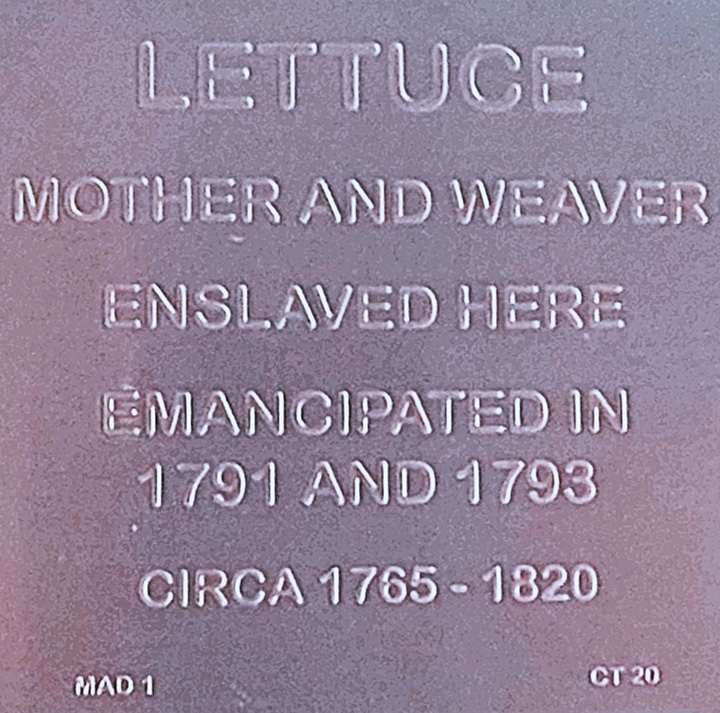LONGMEADOW — This May, two of the 16 people who were known to be enslaved in Longmeadow will have their lives and stories memorialized in stone.

Photo credit: Dennis Culliton
First Church of Christ of Longmeadow hosted a presentation by Dennis Culliton, founder of the Witness Stones Project, on Feb. 29.
He provided historical records of Massachusetts’ participation in the Trans-Atlantic Slave Trade. Culliton explained how, in the 1700s, the enslavement of Native Americans was phased out due to the likelihood of them running away and disappearing into forests they knew well. Instead, enslaved people from Africa and the Caribbean, unfamiliar with the area and without nearby friendly communities, were bought to be used for labor.
Culliton explained that he created the Witness Stones Project after researching the connections between famed abolitionist Harriet Beecher Stowe and the enslaved people owned by her relatives. He found records of enslaved people in New England to be spotty at best, with erasure of their existence in some cases.
When a friend returning from a trip to Germany told him about stolpersteines, brass plaques in Germany and 22 other nations set into the pavement in front of the last address of people known to have been murdered in the Holocaust, Culliton realized that communities could bear witness to the lives and deaths of enslaved people in a similar way. Two hundred and ten Witness Stones have been laid across New England since then.
The Witness Stones Project in Longmeadow is a collaboration between the Historical Society, Longmeadow Public Schools and the First Church of Christ of Longmeadow.
In June 2022, First Church hosted a presentation in conjunction with the Historical Society that detailed what is known about the 16 people known to have been enslaved in Longmeadow. Two of those people, Phillis and Peter, were enslaved by slaveholders, but were able to marry and, despite not being allowed to live together, had at least one child.
Peter and Phillis will be the subject of the Witness Stones Project in Longmeadow. Culliton told Reminder Publishing that the two were chosen by the community, in part because information about them was the most accessible. Diaries from Rev. Stephen Williams, the first minister of First Church, detailed his enslavement of Phillis and other people.
Middle school students and certain students from Longmeadow High School will research the lives of Peter and Phillis using primary sources, such census records, church records, private letters and diaries. Teachers are participating in professional development on how to use five themes — dehumanization, treatment, human agency, the economics of slavery versus freedom and paternalism as a form of inequality — to “excavate” the history of Phillis and Peter, Culliton said. They will then teach students how to use these lenses to explore the topic of slavery through the lives of two people who lived their lives in captivity.
On April 24, First Church will host former Connecticut State Rep. Patricia Wilson Pheanious, whose ancestors were among the first to be recognized through the Witness Stones Project. She will present a related lecture, “Finding, Celebrating and Teaching America’s Hidden History,” at 7 p.m. in the Meeting House’s Bailey Hall. Wilson Pheanious is chair of the Witness Stones Project Board of Directors.
The Witness Stones Project in Longmeadow is funded through a grant from Mass Humanities, a private entity supported by the National Endowment for the Humanities and the Mass Cultural Council.
On May 29, Peter and Phillis’ stones will be unveiled at a 9:30 a.m. ceremony at First Church. Reflecting on the selection of the married couple, Culliton said, “It will be kind of nice to return them back together.”

